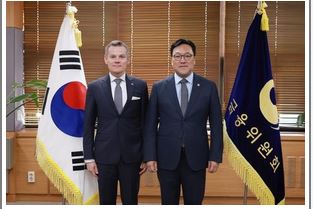 Data released recently by the United States Citizenship and Immigration Services for the first six months of US fiscal 2019 reflects that the agency has continued with its extreme scrutiny of H-1B applications.
Data released recently by the United States Citizenship and Immigration Services for the first six months of US fiscal 2019 reflects that the agency has continued with its extreme scrutiny of H-1B applications.
According to USCIS data from October 1, 2018 up to March 31, 2019, additional evidence was sought in a large number of cases from sponsoring employers to justify the visa application.
According to TimesOfIndia Analysis, shows that requests for evidence (RFEs) were sought in 48% of the H-1B applications (for both initial visa and extensions) that were disposedoff during the first six months of fiscal 2019. This is up by 1% as compared to the corresponding period last year.
Nearly 95,050 RFE related applications were adjudicated by USCIS during the first half of fiscal 2019, as compared to 88,630 during the six month ended March 31, 2018.
Country-wise data has not been released, but a significant portion (more than 60%) of initial H-1B visas were issued to Indians, with the percentage of H-1B extensions granted being even higher.
A significant takeaway, which reflects the growing challenges in obtaining H-1B visas, especially by IT service firms that place their H-1B employees at third party (customer) sites, is the spike in denials of the applications, after the additional information is submitted to USCIS under an RFE.
The approval rate of H-1B applications, after obtaining additional information from the sponsoring employers, declined to 60.5% during the first six months of fiscal 2019. Only, 57,500 applications were approved, as against the 95,050 applications that were subject to the RFE procedure. The RFE approval ratio in the corresponding period of the previous fiscal was higher at 62.3%.
This decline of nearly 2 percentage points shows that vetting of H-1B applications for both initial applications and extensions (for those employees already in the US) has become stricter.
The RFE approval ratio was as high as 83% in fiscal 2015 and has been steadily dropping. It was down to 74% in fiscal 2017 and for the entire fiscal of 2018, it was the same as the half yearly figure of 62.3%.
By issuing an RFE, USCIS seeks additional evidence before it adjudicates an H-1B application. If the evidence submitted, say to prove that the job is a speciality occupation, does not satisfy USCIS officials, the application is rejected. RFEs cast an additional burden on the sponsoring companies — both in terms of time and cost.
Mitchell Wexler, partner, at Fragomen, a global immigration law firm says: “The declining approvals and higher rates of RFEs are consistent with the continued high scrutiny of H-1B applications, pursuant to the Buy American, Hire American executive order.”

























